#interview tips and tricks
Explore tagged Tumblr posts
Text
I want to believe this did not happen. I want to believe that no one could be this moronic, that anyone could think the original idea, had it been accomplished easily, was charming and impressive, rather than eye-rollingly showy and infantile. I want to believe such ghastly hubris would indeed bring them crashing down like a fiery, vomiting Icarus. But if I believe this story, i might just lose faith in my fellow human beings.
Could be a good podcast opener @peonies-no-marigolds
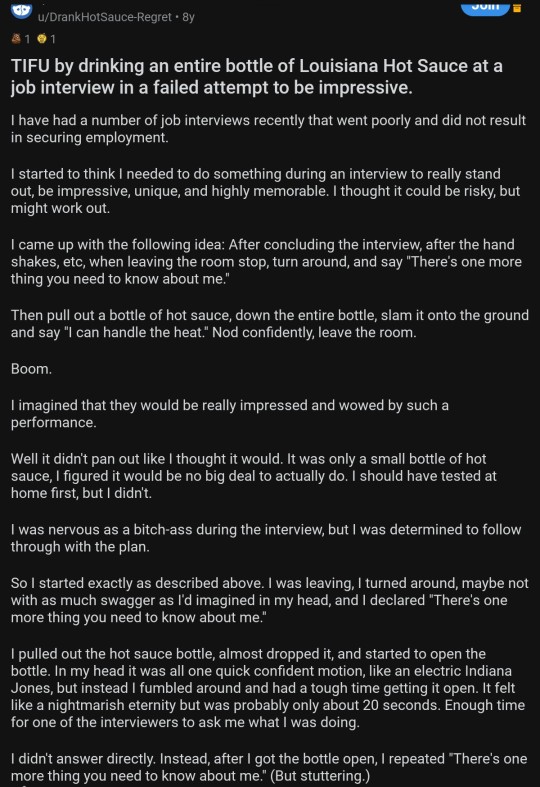

This is my favourite interview strategy
#funny#hilarious#i almost choked laughing#i really hope this is fiction#hot sauce#interview techniques#interview tips and tricks
46K notes
·
View notes
Text
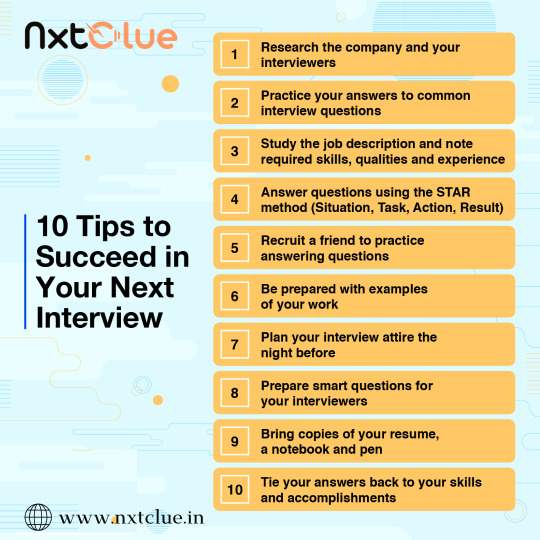
Crack your next interview with these top 10 tips! Research the company, dress professionally, and arrive on time to make a great first impression. Practice common questions, showcase your strengths confidently, and stay honest. Highlight your achievements with examples, listen actively, and ask thoughtful questions. Finally, follow up with a thank-you note to leave a lasting impression.
#Top 10 Interview Tips#Interview tips#Freshers interview tips#Interview preparation#Interview strategies#Job interview confidence#Tough interview questions#Interview tips and tricks#Job interview preparation
0 notes
Text
36 Genius ChatGPT Prompts to Help You Prep for Job Interviews
Unlock your potential with 36 brilliant ChatGPT prompts designed to supercharge your job interview preparation. Get ready to impress and excel in your next interview!
#Job interview preparation#ChatGPT prompts#Interview success tips#Job interview practice#Interview question ideas#ChatGPT assistance#Interview readiness#Interview skills development#Career advancement#Interview strategy#Mock interview questions#Interview coaching#ChatGPT recommendations#Professional development#Interview practice sessions#Job search support#Interview tips and tricks#Chatbot assistance#Interview preparation guide#Interview techniques#Interview confidence building#Behavioral interview questions#Interview practice resources#ChatGPT insights#Employment interview preparation#Interview preparation tools#Job interview guidance#Interview coaching bot#ChatGPT suggestions#Interview skills enhancement
0 notes
Text
Introducing yourself in an interview sets the tone. At upGrad Campus, we coach on impactful introductions, emphasizing highlighting strengths, experiences, and aspirations concisely. It's about making a memorable impression by showcasing your unique value and aligning it with the job you're pursuing.
0 notes
Text
How to Successfully Interview For a Competency-Based Job #16
youtube
Navigating the Maze: Competency-Based Interviews at the UN
Competency-based interviews can be complex, but with the right preparation, they're your chance to shine. Our latest video, "How to Successfully Interview for a Competency-Based Job - UN Jobs #16," dissects the art of effectively communicating your skills in an interview setting.
Learn the STAR method, understand the competencies the UN looks for, and walk through common questions with tailor-made answers. Get a glimpse into the preparation process that could set the stage for a successful career with the United Nations.
#UNJobInterview #CareerPreparation #CompetencyBasedSuccess #UNEmploymentTips
#Competency-Based Interview#United Nations Job Prep#Interview Techniques#Career Advancement#UN Interview Success#STAR Method#Professional Interviewing#Job Competency Skills#United Nations Careers#Preparing for a UN Interview#Interview Tips and Tricks#Career Strategy#Youtube
0 notes
Text

Preparing for a job interview takes a lot more than searching or Googling a list of tricky interview questions. Here are some tricks, tips, and advice that will help you come across as a potential candidate.
#interview tips#interview tricks#interview advice#best interview tips#interview tips and tricks#interview tips for freshers#interview tips for students#interview tips about myself
0 notes
Text
I tell him that I'm interested in learning how to hack and whether he has any tips.
"Going Dark: The Secret Social Lives of Extremists" - Julia Ebner
#book quote#going dark#julia ebner#nonfiction#interview#weev#andrew auernheimer#undercover#hacking#tips and tricks
2 notes
·
View notes
Text
I always feel I do terrible in interviews...gonna try this next time.
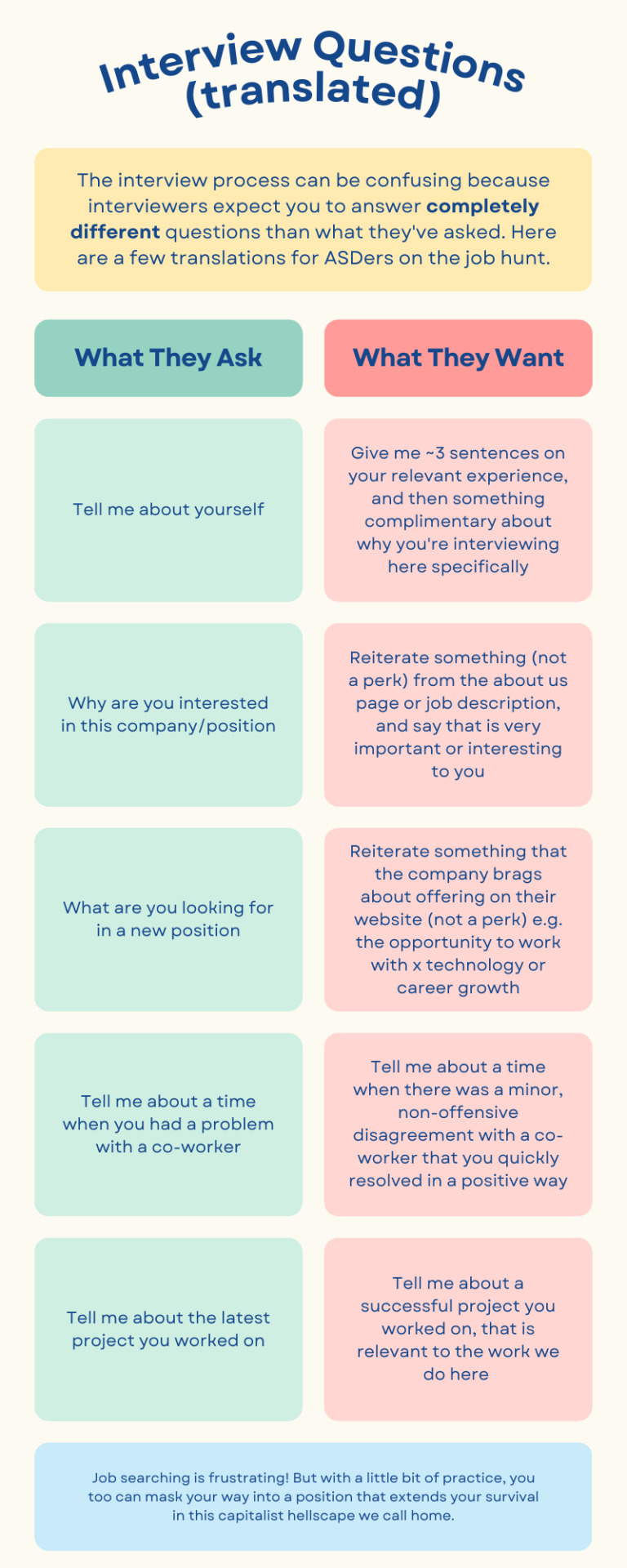
138K notes
·
View notes
Text
Ok I'm MOSTLY recovered from this stupid throat infection but I still got this cough and a mild sore throat 😔 I seriously need this to go away because any day now Im gonna be contacted abt a job interview and I need it to go well!!!!!!!!!!!!!!!!!
#pls give me ur tips and tricks#im currently taking delsym and 2 homeopathic meltaway tablets and drinking LOTS of tea w/ honey#this job interview could very likely get me out of home depot hell and into doing things i love 🙏#raaahhh 💥💥💥 *coughs weakly*#scout.txt
1 note
·
View note
Text

Navigating a job interview successfully involves understanding key Do’s and Don’ts that can significantly impact your chances of landing the dream role. Do research the company before the interview to tailor your responses and show genuine interest.
Prepare yourself to common questions and practice them to boost your confidence. When in the interview, dress professionally and maintain a positive.
Ask insightful questions about the role and company culture to demonstrate your enthusiasm. On the flip side, don’t arrive late; punctuality reflects your respect for the interviewer’s time. Avoid speaking negatively about previous employers, as it can appear unprofessional. for more click here
1 note
·
View note
Text

SSB INTERVIEW DAY 1 FULL PROCEDURE #trending #viralvideo #ssbinterview
Watch Video:https://youtu.be/X_ALr8OXlLk
"SSB INTERVIEW DAY 1 FULL PROCEDURE - Insider Tips from Manasa Defence Academy" is your ultimate guide to navigating the first day of the SSB interview process. In this video, we provide you with detailed insights, tips, and strategies straight from the experts at Manasa Defence Academy, known for providing the best NDA training to students. Learn what to expect, how to prepare, and the key elements that will set you apart from other candidates. Whether you’re aiming for the Army, Navy, Air Force, or any other defence service, this video will equip you with the knowledge and confidence to excel. Our comprehensive approach also covers physical training, English communication skills, and much more. Watch now and start your journey to success with Manasa Defence Academy!
Call: 7799799221 Website: www.manasadefenceacademy.com
#SSBInterview#ManasaDefenceAcademy#NDAPreparation#DefenceJobs#SSBTips#InterviewSuccess#SSBProcedure#MilitaryTraining#ArmyAspirants #DefenceCareer#nda#army#airforce#bestdefenceacademy#bestdefenceacademyingajuwaka#bestdefenceacademyinap#bestdefenceacademyinvizag#bestdefenceacademyinandhrapradesh#bestdefenceacademyinvsp#ndacoaching
#SSB interview#SSB interview day 1#Manasa Defence Academy#NDA training#SSB tips#Army interview preparation#defence academy#SSB full procedure#SSB interview guide#military training#SSB coaching#NDA coaching#how to pass SSB interview#defence jobs#Indian Army#Indian Navy#Indian Airforce#SSB tricks#best defence academy#SSB preparation#SSB interview success#Army training#Navy training#Airforce training#defence exam preparation#SSB mock interview#stage speech training#English speaking skills for SSB#NDA success tips#Army career
0 notes
Text
#job#interview#tips#tricks#nepal#nepalijob#jobinterview#prepareinterview#nepalijobmarket#successfulinterview#success#tredndings#trends#technology#techsavvy#crack#kathmandu#jobsystem#nepotism#fyp#achieve#goals
0 notes
Text
Your Guide To SQL Interview Questions for Data Analyst

Introduction
A Data Analyst collects, processes, and analyses data to help companies make informed decisions. SQL is crucial because it allows analysts to efficiently retrieve and manipulate data from databases.
This article will help you prepare for SQL interview questions for Data Analyst positions. You'll find common questions, detailed answers, and practical tips to excel in your interview.
Whether you're a beginner or looking to improve your skills, this guide will provide valuable insights and boost your confidence in tackling SQL interview questions for Data Analyst roles.
Importance Of SQL Skills In Data Analysis Roles
Understanding SQL is crucial for Data Analysts because it enables them to retrieve, manipulate, and manage large datasets efficiently. SQL skills are essential for accurate Data Analysis, generating insights, and making informed decisions. Let's explore why SQL is so important in Data Analysis roles.
Role Of SQL In Data Retrieval, Manipulation, and Management
SQL, or Structured Query Language, is the backbone of database management. It allows Data Analysts to pull data from databases (retrieval), change this data (manipulation), and organise it effectively (management).
Using SQL, analysts can quickly find specific data points, update records, or even delete unnecessary information. This capability is essential for maintaining clean and accurate datasets.
Common Tasks That Data Analysts Perform Using SQL
Data Analysts use SQL to perform various tasks. They often write queries to extract specific data from databases, which helps them answer business questions and generate reports.
Analysts use SQL to clean and prepare data by removing duplicates and correcting errors. They also use it to join data from multiple tables, enabling a comprehensive analysis. These tasks are fundamental in ensuring data accuracy and relevance.
Examples Of How SQL Skills Can Solve Real-World Data Problems
SQL skills help solve many real-world problems. For instance, a retail company might use SQL to analyse sales data and identify the best-selling products. A marketing analyst could use SQL to segment customers based on purchase history, enabling targeted marketing campaigns.
SQL can also help detect patterns and trends, such as identifying peak shopping times or understanding customer preferences, which are critical for strategic decision-making.
Why Employers Value SQL Proficiency in Data Analysts
Employers highly value SQL skills because they ensure Data Analysts can work independently with large datasets. Proficiency in SQL means an analyst can extract meaningful insights without relying on other technical teams. This capability speeds up decision-making and problem-solving processes, making the business more agile and responsive.
Additionally, SQL skills often indicate logical, solid thinking and attention to detail, which are highly desirable qualities in any data-focused role.
Basic SQL Interview Questions
Employers often ask basic questions in SQL interviews for Data Analyst positions to gauge your understanding of fundamental SQL concepts. These questions test your ability to write and understand simple SQL queries, essential for any Data Analyst role. Here are some common basic SQL interview questions, along with their answers:
How Do You Retrieve Data From A Single Table?
Answer: Use the `SELECT` statement to retrieve data from a table. For example, `SELECT * FROM employees;` retrieves all columns from the "employees" table.
What Is A Primary Key?
Answer: A primary key is a unique identifier for each record in a table. It ensures that no two rows have the same key value. For example, in an "employees" table, the employee ID can be the primary key.
How Do You Filter Records In SQL?
Answer: Use the `WHERE` clause to filter records. For example, `SELECT * FROM employees WHERE department = 'Sales';` retrieves all employees in the Sales department.
What Is The Difference Between `WHERE` And `HAVING` Clauses?
Answer: The `WHERE` clause filters rows before grouping, while the `HAVING` clause filters groups after the `GROUP BY` operation. For example, `SELECT department, COUNT(*) FROM employees GROUP BY department HAVING COUNT(*) > 10;` filters departments with more than ten employees.
How Do You Sort Data in SQL?
Answer: Use the `ORDER BY` clause to sort data. For example, `SELECT * FROM employees ORDER BY salary DESC;` sorts employees by salary in descending order.
How Do You Insert Data Into A Table?
Answer: Use the `INSERT INTO` statement. For example, `INSERT INTO employees (name, department, salary) VALUES ('John Doe', 'Marketing', 60000);` adds a new employee to the "employees" table.
How Do You Update Data In A Table?
Answer: Use the `UPDATE` statement. For example, `UPDATE employees SET salary = 65000 WHERE name = 'John Doe';` updates John Doe's salary.
How Do You Delete Data From A Table?
Answer: Use the `DELETE` statement. For example, `DELETE FROM employees WHERE name = 'John Doe';` removes John Doe's record from the "employees" table.
What Is A Foreign Key?
Answer: A foreign key is a field in one table that uniquely identifies a row in another table. It establishes a link between the two tables. For example, a "department_id" in the "employees" table that references the "departments" table.
How Do You Use The `LIKE` Operator?
Answer: SQL's `LIKE` operator is used for pattern matching. For example, `SELECT * FROM employees WHERE name LIKE 'J%';` retrieves all employees whose names start with 'J'.
Must Read:
How to drop a database in SQL server?
Advanced SQL Interview Questions
In this section, we delve into more complex aspects of SQL that you might encounter during a Data Analyst interview. Advanced SQL questions test your deep understanding of database systems and ability to handle intricate data queries. Here are ten advanced SQL questions and their answers to help you prepare effectively.
What Is The Difference Between INNER JOIN And OUTER JOIN?
Answer: An INNER JOIN returns rows when there is a match in both tables. An OUTER JOIN returns all rows from one table and the matched rows from the other. If there is no match, the result is NULL on the side where there is no match.
How Do You Use A Window Function In SQL?
Answer: A window function calculates across a set of table rows related to the current row. For example, to calculate the running total of salaries:

Explain The Use Of CTE (Common Table Expressions) In SQL.
Answer: A CTE allows you to define a temporary result set that you can reference within a SELECT, INSERT, UPDATE, or DELETE statement. It is defined using the WITH clause:
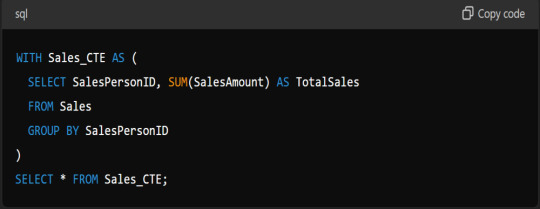
What Are Indexes, And How Do They Improve Query Performance?
Answer: Indexes are database objects that improve the speed of data retrieval operations on a table. They work like the index in a book, allowing the database engine to find data quickly without scanning the entire table.
How Do You Find The Second-highest Salary In A Table?
Answer: You can use a subquery for this:
What Is A Subquery, And When Would You Use One?
Answer: A subquery is a query nested inside another query. You use it when you need to filter results based on the result of another query:

Explain The Use Of GROUP BY And HAVING Clauses.
Answer: GROUP BY groups rows sharing a property so that aggregate functions can be applied to each group. HAVING filters groups based on aggregate properties:

How Do You Optimise A Slow Query?
Answer: To optimise a slow query, you can:
Use indexes to speed up data retrieval.
Avoid SELECT * by specifying only necessary columns.
Break down complex queries into simpler parts.
Analyse query execution plans to identify bottlenecks.
Describe A Scenario Where You Would Use A LEFT JOIN.
Answer: Use a LEFT JOIN when you need all records from the left table and the matched records from the right table. For example, to find all customers and their orders, even if some customers have no orders:

What Is A Stored Procedure, And How Do You Create One?
Answer: A stored procedure is a prepared SQL code you can reuse. It encapsulates SQL queries and logic in a single function:
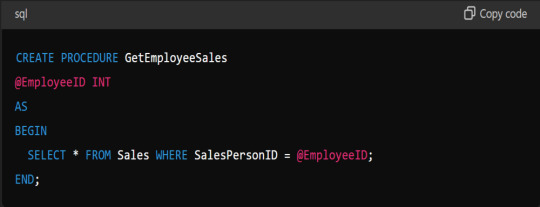
These advanced SQL questions and answers will help you demonstrate your proficiency and problem-solving skills during your Data Analyst interview.
Practical Problem-Solving Scenarios SQL Questions
In SQL interviews for Data Analyst roles, you’ll often face questions that test your ability to solve real-world problems using SQL. These questions go beyond basic commands and require you to think critically and apply your knowledge to complex scenarios. Here are ten practical SQL questions with answers to help you prepare.
How Would You Find Duplicate Records In A Table Named `Employees` Based On The `Email` Column?
Answer:
Write A Query To Find The Second Highest Salary In A Table Named `Salaries`.
Answer:

How Do You Handle NULL Values In SQL When Calculating The Total Salary In The `Employees` Table?
Answer:

Create A Query To Join The `Employees` Table And `Departments` Table On The `Department_id` And Calculate The Total Salary Per Department.
Answer:
How Do You Find Employees Who Do Not Belong To Any Department?
Answer:
Write A Query To Retrieve The Top 3 Highest-paid Employees From The `Employees` Table.
Answer:
How Do You Find Employees Who Joined In The Last Year?
Answer:
Calculate The Average Salary Of Employees In The `Employees` Table, Excluding Those With A Wage Below 3000.
Answer:
Update The Salary By 10% For Employees In The `Employees` Table Who Work In The 'Sales' Department.
Answer:
Delete Records Of Employees Who Have Not Been Active For The Past 5 years.
Answer:
These questions cover a range of scenarios you might encounter in an SQL interview. Practice these to enhance your problem-solving skills and better prepare for your interview.
Tips for Excelling in SQL Interviews
Understanding how to excel in SQL interviews is crucial for aspiring data professionals, as it showcases technical expertise and problem-solving skills and enhances job prospects in a competitive industry. Excelling in SQL interviews requires preparation and practice. Here are some tips to help you stand out and perform your best.
Best Practices for Preparing for SQL Interviews
Preparation is critical to success in SQL interviews. Start by reviewing the basics of SQL, including common commands and functions. Practice writing queries to solve various problems.
Ensure you understand different types of joins, subqueries, and aggregate functions. Mock interviews can also be helpful. They simulate the real interview environment and help you get comfortable answering questions under pressure.
Resources for Improving SQL Skills
Knowing about resources for improving SQL skills enhances data management proficiency and boosts career prospects. It also facilitates complex Data Analysis and empowers you to handle large datasets efficiently. There are many resources available to help you improve your SQL skills. Here are a few:
Books: "SQL For Dummies" by Allen G. Taylor is a great start. "Learning SQL" by Alan Beaulieu is another excellent resource.
Online Courses: Many websites offer comprehensive SQL courses. Explore platforms that provide interactive SQL exercises.
Practice Websites: LeetCode, HackerRank, and SQLZoo offer practice problems that range from beginner to advanced levels. Regularly solving these problems will help reinforce your knowledge and improve your problem-solving skills.
Importance of Understanding Business Context and Data Interpretation
Understanding the business context is crucial in addition to technical skills. Employers want to know that you can interpret data and provide meaningful insights.
Familiarise yourself with the business domain relevant to the job you are applying for. Practice explaining your SQL queries and the insights they provide in simple terms. This will show that you can communicate effectively with non-technical stakeholders.
Tips for Writing Clean and Efficient SQL Code
Knowing tips for writing clean and efficient SQL code ensures better performance, maintainability, and readability. It also leads to optimised database operations and easier collaboration among developers. Writing clean and efficient SQL code is essential in interviews. Follow these tips:
Use Clear and Descriptive Names: Use meaningful names for tables, columns, and aliases. This will make your queries more straightforward to read and understand.
Format Your Code: Use indentation and line breaks to organise your query. It improves readability and helps you spot errors more easily.
Optimise Your Queries: Use indexing, limit the use of subqueries, and avoid unnecessary columns in your SELECT statements. Efficient queries run faster and use fewer resources.
Common Pitfalls to Avoid During the Interview
Knowing common interview pitfalls is crucial to present your best self and avoid mistakes. It further increases your chances of securing the job you desire. Preparation is key. Here's how you can avoid some common mistakes during the interview:
Not Reading the Question Carefully: Ensure you understand the interviewer's question before writing your query.
Overcomplicating the Solution: Start with a simple solution and build on it if necessary. Avoid adding unnecessary complexity.
Ignoring Edge Cases: Consider edge cases and test your queries with different datasets. It shows that you think critically about your solutions.
By following these tips, you'll be well-prepared to excel in your SQL interviews. Practice regularly, use available resources, and focus on clear, efficient coding. Understanding the business context and avoiding common pitfalls will help you stand out as a strong candidate.
Read Further:
Advanced SQL Tips and Tricks for Data Analysts.
Conclusion
Preparing for SQL interviews is vital for aspiring Data Analysts. Understanding SQL fundamentals, practising query writing, and solving real-world problems are essential.
Enhance your skills using resources such as books, online courses, and practice websites. Focus on writing clean, efficient code and interpreting data within a business context.
Avoid common pitfalls by reading questions carefully and considering edge cases. By following these guidelines, you can excel in your SQL interviews and secure a successful career as a Data Analyst.
#sql interview questions#sql tips and tricks#sql tips#sql in data analysis#sql#data analyst interview questions#sql interview#sql interview tips for data analysts#data science#pickl.ai#data analyst
0 notes
Text
youtube
Tell me, or Show me, how to write professional emails just for your post-interview follow-ups?
Welcome to my Channel - HireBunch, and FireBunches!
In today’s episode, we’ll talk about how we can write professional emails to follow up with any hiring manager and remind them about your interview. These tips & tricks can help you to land a job very quickly with examples.
Watch the video till the end, hope you enjoy the video. If you enjoy this video, please give it a like, comment, and share, and don't forget to SUBSCRIBE!
#jobs#job#interview#followup#reminder#tips&tricks#interviewprocess#career#careeradvice#jobinterview#jobsearch#business#success#hiring#careergoals#work#motivation#recruitment#employment#careers#careerdevelopment#goals#students#training#nowhiring#careercoach#entrepreneur#leadership#jobseekers#recruiting
0 notes
Text
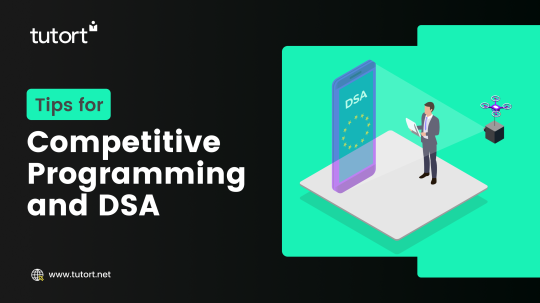
If you're looking to improve your competitive programming and data structures and algorithms (DSA) skills, here are some friendly tips to help you navigate the process effectively.

Understand the Difference: DSA vs CP
When diving into competitive programming and DSA, it's important to recognize the distinction between the two:
- DSA: Focuses on solving real-world problems using programming concepts relevant to computer science. It involves finding suitable solutions for real-world scenarios and implementing them using code.
- Competitive Programming (CP): Often described as a "mind sport," CP involves competing with other coders to solve problems using programming, logic, and analytical skills within a limited time and memory. While DSA can help with real-world problem-solving and job readiness, CP hones problem-solving skills and critical thinking.
Set Your Goal
Define your ultimate goal behind engaging in competitive programming and DSA:
- If you aim to excel in programming interviews and enhance your development skills, focus on honing your problem-solving skills through platforms like LeetCode, GeeksForGeeks, and HackerRank.
- If you're keen on training your brain and improving problem-solving and critical thinking, consider diving into competitive programming to utilize various programming aspects to solve problems efficiently.
Start Gathering Information
Once you've decided on your path, take some time to gather essential resources, including books, roadmaps, YouTube playlists, websites, and advice from experienced individuals. Engaging with those who have prior experience can provide valuable guidance.
Clear Your Fundamentals
Before delving into problem-solving, ensure your fundamentals are solid. This includes:
- Language: Choose a language like C++, Java, or Python, as they are commonly allowed in interviews and can offer efficiency in competitive programming.
- Programming Fundamental*: Brush up on data types, functions, decision-making, and language-specific features to bolster your understanding and problem-solving capabilities.
- Mathematics: Familiarize yourself with concepts such as number theory, modulo arithmetic, prime numbers, and other mathematical principles relevant to problem-solving.
Start with Baby Steps
Take a gradual approach to problem-solving, understanding that it's a learning process. Embrace challenges and setbacks, and allow yourself time to grasp and solve problems effectively.
Document Your Progress
Maintain a record of your learning journey, including problems you've solved and the approaches used. This documentation can help identify patterns and improve your problem-solving strategies over time.
Don't Beat Yourself Up
Remember to take breaks and engage in activities outside of programming to avoid burnout. It's okay to encounter challenges; perseverance and learning from setbacks are central to growth in competitive programming and DSA.
By following these tips, you can embark on your competitive programming and DSA journey with a clearer understanding and a friendlier approach to learning and improvement.
Good luck!
#interview tips#coding tips#tips#tutortacademy#data structures#algorithm#programming#tutort#tips and tricks#competitiveprogramming#competitive exams#competition
0 notes
Video
youtube
The Best Secrets to Pass the k1 Fiancé Visa Interview | What You ABSOLUT...
#youtube#Tips Tricks and Secrets to Beat the K1 Visa Interview. Learn what questions to be prepared for and What You ABSOLUTELY Must Know. Hello We'
0 notes